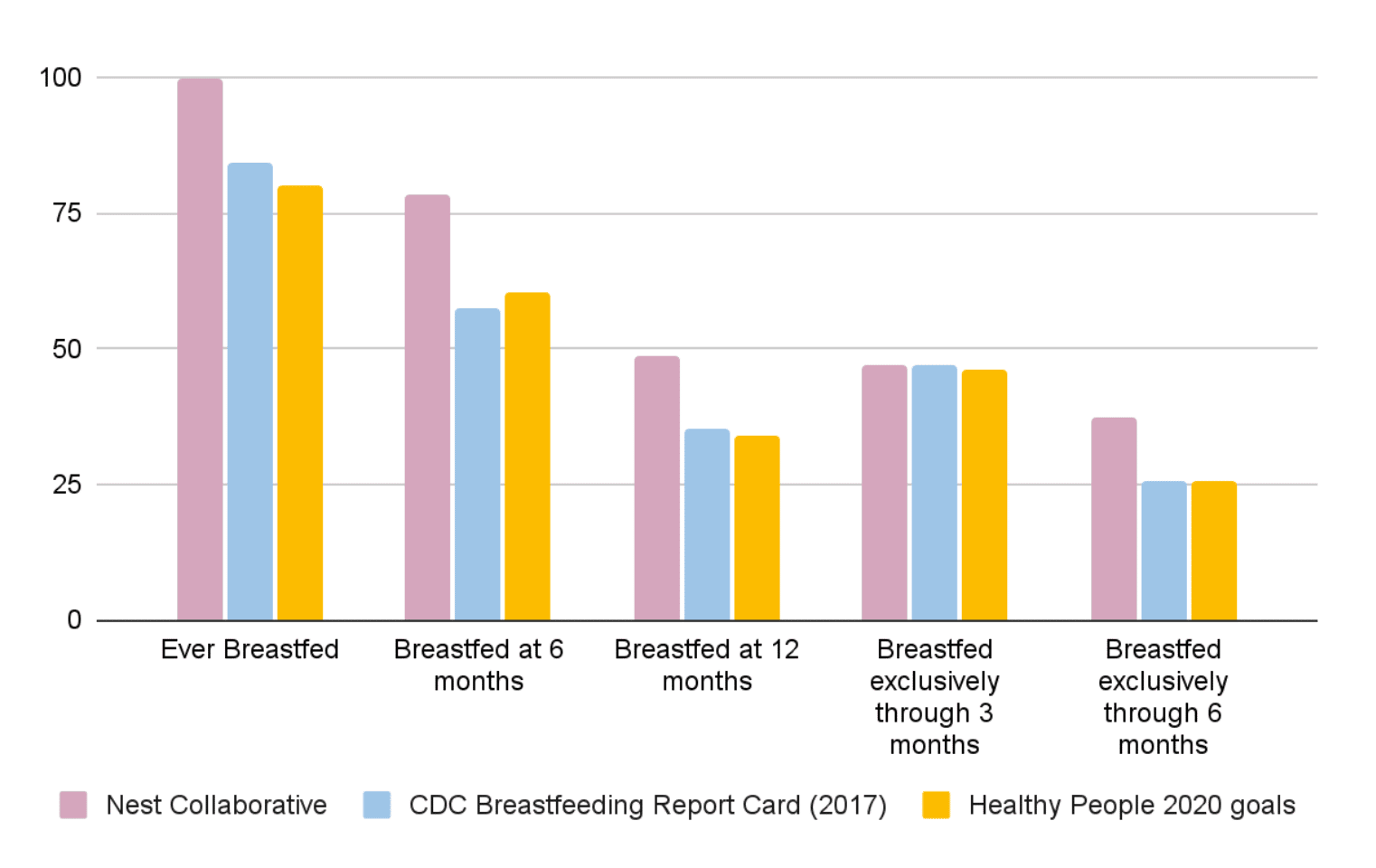We are excited to announce Nest Collaborative as our Partner of the Week, where we highlight one of our unique PlanSource Marketplace Partners and the value they bring to the benefits industry. We recently sat down to discuss their unique employee benefits and how they support women’s health within the benefits industry.
What makes your company unique in the benefits space – what key benefits do you provide to employees?
Through remote online education and preventive lactation care consultations, Nest Collaborative assists employers in decreasing medical and non-medical costs related to low breastfeeding rates amongst employees and their families. Estimates suggest that costs can be reduced as much as ~$4000 for employees who breastfeed exclusively for 6 months. An employer with 1,000 annual births and a 90% adoption rate, could see total annual savings of $3,735,000, and a 5 year total savings of $18,675,000.
Unlike alternative lactation support benefit vendors, Nest’s clinically-led model ensures higher engagement and program utilization by working collaboratively with each employee’s primary pediatricians and OBGYNs to provide evidence-based support focused on longer-term breastfeeding success in the workplace. Beginning in the prenatal period, Nest deploys a care model that implements multiple evidence-based interventions proven to extend the duration of exclusive breastfeeding for families, providing grounds for improved short-term health outcomes for both mothers and infants, and directly reducing associated care costs.
Further, as an in-network provider for most employee health plans, Nest has gained the trust and buy-in from network perinatal providers, from whom employees predominantly source their postpartum and pediatric care. Employers who provide Nest’s services decrease the risk of paying for lactation resources twice–both internally for HR-related vendor services, in addition to the network providers from which employees are more likely to source their care.
Nest Collaborative is the nation’s only virtual lactation consultation platform, providing payer-reimbursed virtual breastfeeding consultations, 7 days a week in all 50 states and in 10+ languages. For a more communal experience, Nest’s Latch Lounge lets new parents join virtual group sessions with other parents to discuss common breastfeeding challenges, guided by a Nest Collaborative IBCLC.
Across the US today, 90% of new parents decide to breastfeed their infants, but only 25% are able to meet the minimum recommendation to breastfeed exclusively for 6 months. While barriers to more optimal breastfeeding rates have been identified – access, timing and affordability – few lactation support programs implement models to directly address them with evidence-based care.
Nest Collaborative partners with companies to ensure families are provided better and more comprehensive education and precise risk counseling prenatally, while securing accessible, affordable and proactive support designed to mitigate lactation problems and early termination.
Nest assists employers in addressing:
- Increased medical costs for employee families related to a high breastfeeding success rate (longer lengths of hospital stay, increased readmissions, high acute and chronic illness rates (asthma, diabetes, obesity).
- Known barriers to lactation care such as early return to work, affordability and poor integration into primary care
- A national shortage of trained lactation providers
- Poor payer coverage of lactation services
- A historic model of lactation support focused on problems rather than prevention
Improved access to preventive lactation support can lead to:
- Increased retention by improving employee satisfaction and loyalty, mitigating turnover costs
- Increased productivity
- Less absenteeism
- Lower health care costs due to lower medical insurance claims
- Improved recruitment
Centers for Disease Control and Prevention. (2019, December 31). Results: Breastfeeding rates National Immunization Survey. https://www.cdc.gov/breastfeeding/data/nis_data/results.html
Office of Disease Prevention and Health Promotion (2021, May 20). Maternal, infant, and child health. https://www.healthypeople.gov/2020/topics-objectives/topic/maternal-infant-and-child-health/objectives
Empathy, Innovation & Action: Top Takeaways from HR Leaders Who Spoke at Eclipse
Empathy, Innovation & Action:Top Takeaways from the HR Leaders Who Spoke at...
Charting the Future of PlanSource: Our Vision for What’s Ahead
Discover how PlanSource unveiled game-changing AI innovations at Eclipse 2025, transforming how HR leaders manage benefits and how employees choose them. The future of benefits starts here.
Navigating New Requirements with the Paperwork Burden Reduction Act
Navigating New Requirements with the Paperwork Burden Reduction...





